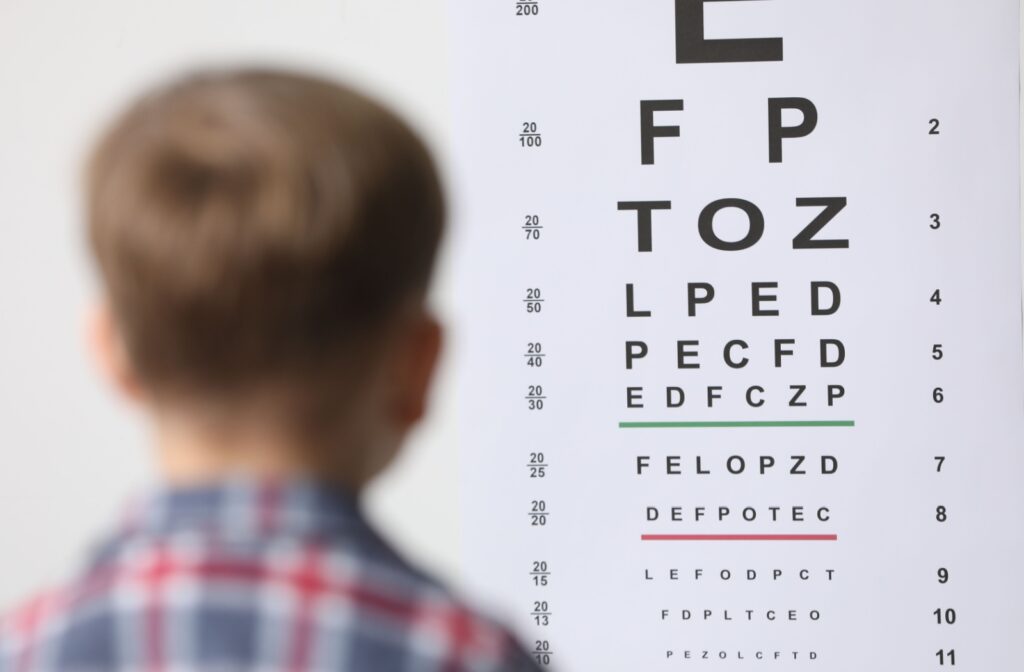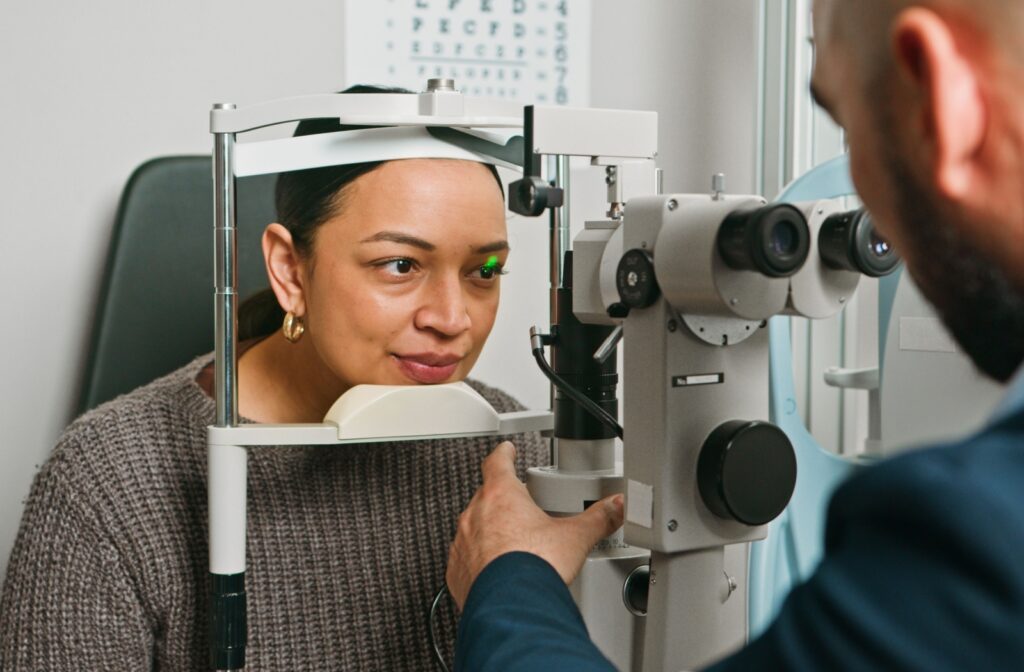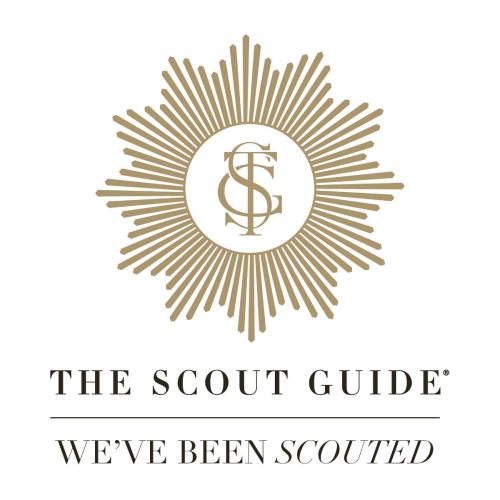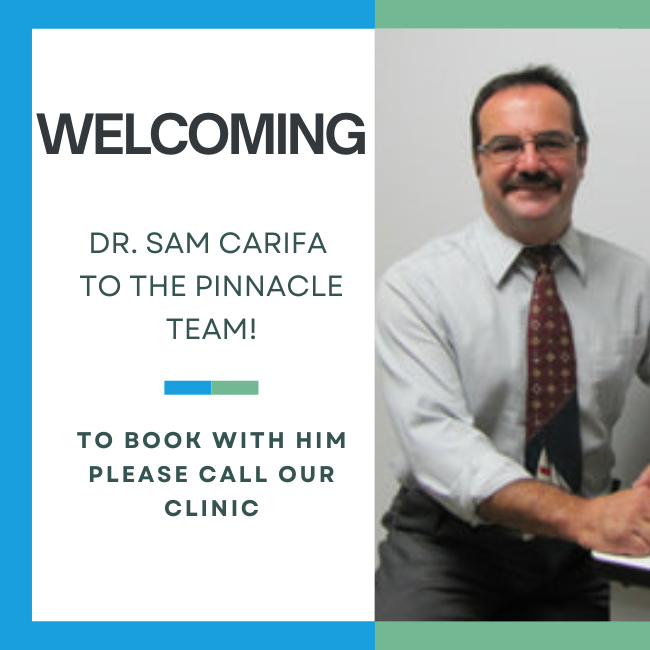If you can’t remember when your last eye exam was, it might be time to book one.
Routine check-ups can easily fall off the radar—but your eyes support nearly everything you do. From reading emails and driving to work to enjoying a movie night, your eyes deserve just as much care as the rest of your health.
The exam itself usually takes about 30 minutes, but the benefits of protecting your vision can last a lifetime. But remember, a comprehensive eye exam isn’t just about updating your prescription. It helps detect eye diseases early, often before you notice any symptoms.
What to Expect at Your Eye Exam
A comprehensive eye exam is much more than reading letters on a wall chart. During your exam, we assess your vision and check for signs of eye conditions such as glaucoma, cataracts, and age-related macular degeneration.
But the benefits don’t stop there. A comprehensive exam can also reveal signs of general health issues, including diabetes and high blood pressure.
During your eye exam, we will:
- Assess your visual acuity and determine if you need corrective lenses
- Evaluate your overall ocular health to detect early signs of eye disease
- Screen for underlying health conditions that may appear first in the eyes
How Long Does an Eye Exam Take?
On average, a comprehensive eye exam takes around 30 minutes, though this may vary depending on your age and specific needs:
- Kids and preteens may need extra time to assess their developing vision.
- Older adults often require a more in-depth evaluation to monitor for age-related conditions like cataracts or macular degeneration.
How Often Should You Get an Eye Exam?
Regular exams are essential for early detection and prevention. The American Optometric Association recommends the following:
- Children (0–19): First exam between 6–9 months, another between ages 2–5, then annually during school years
- Adults (20–64): Every 2 years, unless wearing contact lenses or managing a health condition that requires more frequent check-ups
- Seniors (65+): Annually, to monitor for age-related changes in vision
Routine comprehensive eye exams are your first line of defense in protecting your vision and overall health at every stage of life.
Contact Lens Exams
For contact lens wearers, a standard eye exam isn’t enough. A contact lens exam takes a specialized approach to make your lenses fit comfortably, safely, and provide clear vision.
During your contact lens exam, we will:
- Take precise measurements of your eyes to determine the correct lens fit
- Provide training for first-time wearers, including how to insert, remove, and care for your lenses
- Offer trial lenses, giving you a chance to test them before choosing a specific type
Contact lens exams typically take 45–60 minutes, especially if it’s your first time wearing lenses. That extra time allows us to support a smooth and safe transition, answer your questions, and address any concerns.
Whether you’re a seasoned contact lens wearer or just getting started, the process is designed to help you feel confident and comfortable with your lenses.

Diabetic Eye Exams
Diabetes and eye health are closely connected. Diabetes can increase your risk for several serious eye conditions, including diabetic retinopathy, diabetic macular edema, cataracts, and glaucoma. These conditions often develop without noticeable symptoms until significant vision damage has already occurred.
That’s why diabetic eye exams are essential for early detection and prevention.
During a diabetic eye exam, we may perform:
- A dilated eye exam, using special drops to widen your pupils and allow a detailed view of the retina and optic nerve
- Imaging tests, such as optical coherence tomography (OCT) or fundus photography, to capture high-resolution images of your eye tissue
A diabetic eye exam typically takes about 60 minutes, including around 20 minutes needed for the dilation drops to take effect. While it may take a bit longer than a standard exam, the extra time is critical for protecting your vision and overall eye health.
Is It Time for a Glaucoma Test?
Glaucoma is a serious eye disease that can cause permanent vision loss if left undetected and untreated. Often called the “silent thief of sight,” glaucoma typically develops without noticeable symptoms in its early stages. That’s why glaucoma testing is a crucial part of routine eye exams.
Common tests used to detect glaucoma include:
- Tonometry to measure intraocular pressure (IOP)
- Visual field testing to identify blind spots or changes in peripheral (side) vision
- Optic nerve evaluation, often using imaging tools like optical coherence tomography (OCT), to monitor the health of the optic nerve and retinal tissue
These tests are typically integrated into comprehensive eye exams, helping with early detection, timely intervention, and effective management of glaucoma.
Time to Prioritize Your Vision
Protecting your vision starts with understanding what your eyes need and how often they need care. Whether it’s your first exam in years or a specialized visit for contact lenses, diabetes, or glaucoma, staying on top of your eye health doesn’t just safeguard your sight—it supports your overall well-being.
If it’s been a while since your last exam, it’s time to visit our team at Pinnacle Eyecare. We can help you see clearly and confidently. Book your appointment today—we’re here to guide you every step of the way.






